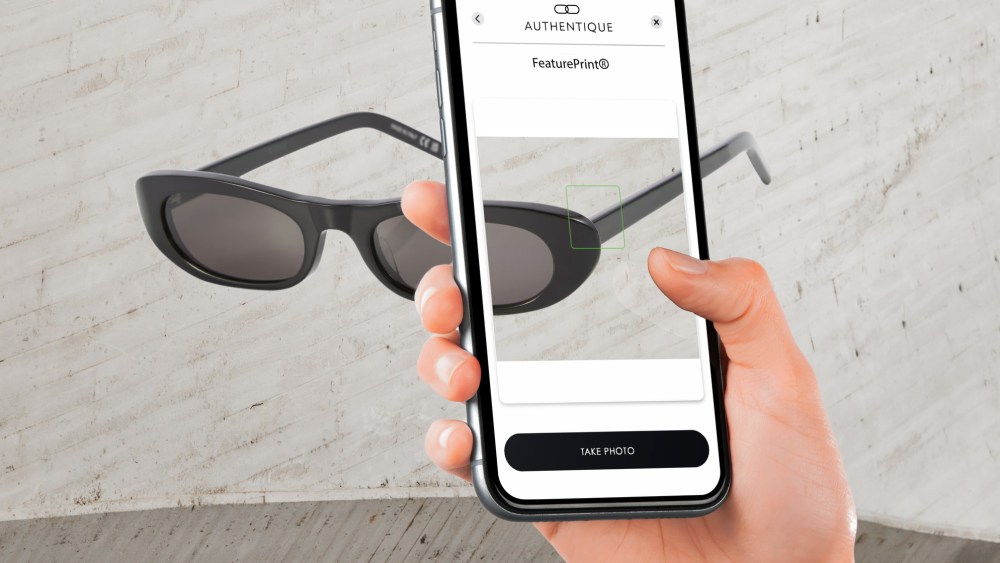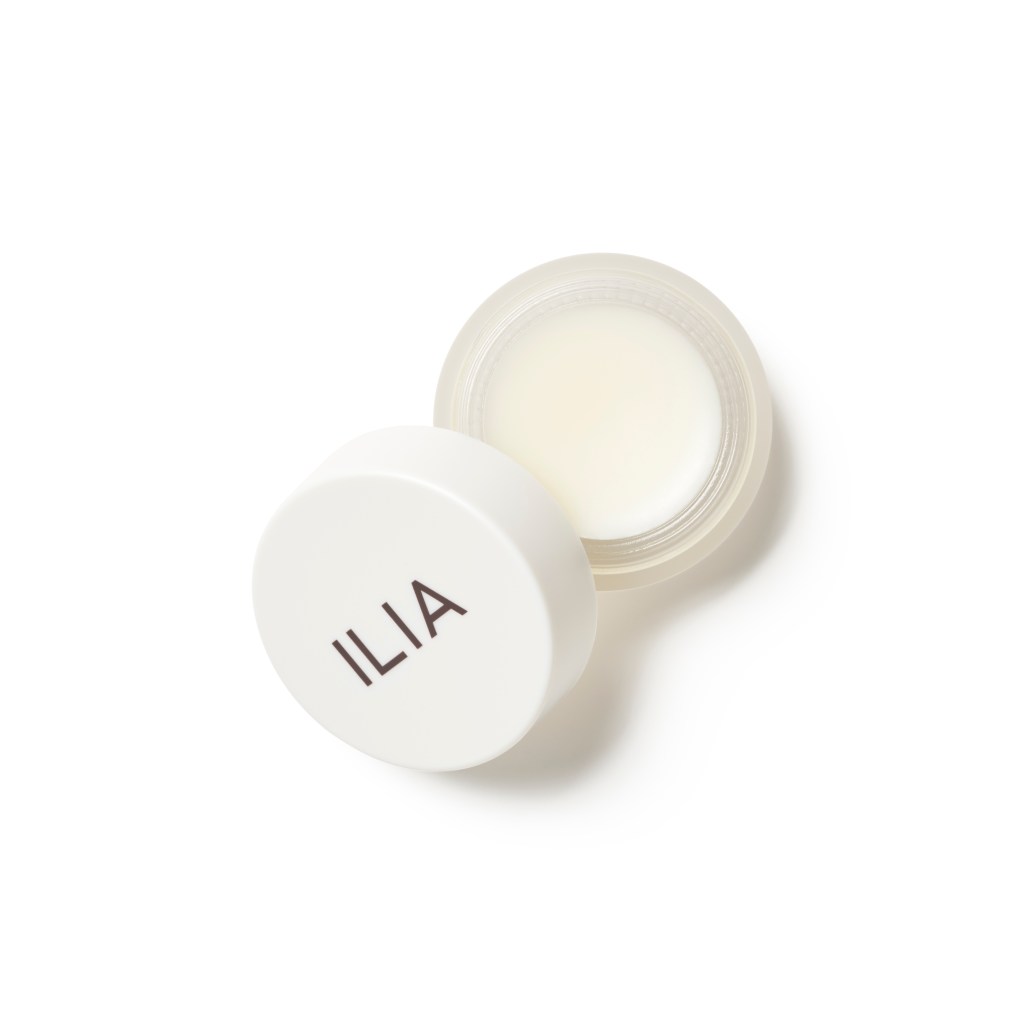A product authentication app for fashion and luxury goods, already powered by visual AI, is about to get a major upgrade.
Paris-based Authentique, which arms consumers with authentication tools via their smartphones, has forged a strategic partnership with American software firm Alitheon, famed for its patented FeaturePrint serialization technology.
Alitheon’s tech has been employed across the aerospace, military, energy and pharmaceutical sectors to identify, authenticate and trace objects with just a picture. The company describes its FeaturePrint franchise as giving objects what fingerprints are for people — a unique identifier that doesn’t require marking, modifying or adding anything to the item.
Disclosing the tie-up exclusively to WWD, Authentique, a subsidiary of fashion-tech firm Ordre Group, said its exclusive license to use FeaturePrint would bring immediate benefits for brands, retailers and resellers battling counterfeits and return fraud.
You May Also Like
It should also bring additional peace of mind to consumers when they splash out on designer fashions and accessories.
“Our deep presence and understanding of the market, combined with Alitheon’s superior technology, will enable our customers to tackle some of our industry’s biggest authentication and verification challenges,” said Simon P. Lock, chief executive officer and founder of Ordre Group, which was established in 2014 and is best known for its virtual showroom platform and 360-degree view mobile imaging technology. “Together, we are ushering in a new era — where counterfeit goods, gray market products and fraudulent returns can be irrefutably identified with one click of a phone camera.”
Authentique also recently topped up its human braintrust by tapping luxury veteran and tech executive Daniela Ott as strategic adviser. Ott was most recently general secretary of the Aura Blockchain Consortium, and founded Agape Strategy Consulting in 2019.

She is also known for her long career at Kering, where she had been CEO of the Tomas Maier fashion house, chief operating officer of the French group’s luxury division, and a director of strategy at its Gucci and Balenciaga brands.
Authentique already works with brands including Patou and Burberry. During an interview, Lock retrieved a yellow, half-moon-shaped Le Patou bag from its dust cover, opened the flap and trained his phone camera on a credit card-sized patch of leather near the clasp hardware. He did the same with a Burberry scarf, photographing an area of checkered cashmere near the label.
“This is one of 23,000 identical scarves, and the technology can tell one scarf from the other,” he said. “That’s how sophisticated the algorithm is.”
Lock explained that its visual AI examines and evaluates roughly 20,000 data points — minute surface and structural details of a product’s raw materials and construction. Those digital IDs are then registered in a database.
And what about changes after repeated use and laundering? Lock explained that the algorithm will learn to detect what wear and tear looks like from the changes of any of the reference points each time a product is scanned.

Meanwhile, Alitheon, founded in 2017, has already employed its FeaturePrint technology to ensure the authenticity of crucial engine parts for jetliners, brake pads for cars, circuit boards and rare baseball cards.
“We are excited to pair our technology with Authentique’s deep sector knowledge and presence, to offer the luxury and fashion industry the last solution they will ever need to ensure and secure trust in
their products and their brands,” said Roei Ganzarski, CEO of Alitheon, which pegs the estimated global economic value of counterfeiting and piracy at $3 trillion.
Authentique’s upgrade arrives as luxury brands race to meet a new European Commission regulation called the Ecodesign for Sustainable Product Regulation, that will take effect sometime this year. The aim is to make transparency and traceability a regulatory requirement for luxury brands made and/or sold in Europe.
To meet the new regulations, many brands are turning to digital product passports, or DPPs, which connect physical products to a digital identity.
Apps that leverage visual AI to create a DPP are seen as an alternative to RFID technology, near field communication tags, or QR codes that can be scanned to track a product’s provenance.
Authentique argues such traditional methods of tagging products are problematic because they can be removed, counterfeited, can wear out and are difficult to recycle.
Lock noted it is well nigh impossible to attach NFC tags or QR codes to small items like watches and jewelry whereas “working with Alitheon, the size of the digital fingerprint can be now down to a pinhead, so it can even used on very small products like earrings.”
Indeed, Authentique says its partnership with Alitheon will “drive significant advancements and establish new standards within the sector.”
Authentique recently surveyed 330 avid fashion and luxury consumers and found that 56 percent are interested in the idea of products having a digital passport — and would purchase more secondhand items if they came with such passports.
Many still need to be educated about what DPPs entail, according to a white paper detailing the results of the survey. Still, 90 percent of respondents said they would use a DPP for product information, 87 percent for authenticity certificates, and 86 percent for care and repair instructions, versus 71 percent for sustainability information.
“Consumer insight must drive implementation strategy around DPPs” is Ott’s recommendation.
According to Authentique, every textile product for sale in the EU will need a DPP by 2030, with some requirements taking effect as early as July 2027.
Lock hinted that Authentique will roll out programs with several luxury brands, too, and it’s talking to large retailers as well, which are keen to reduce fraudulent returns — and grab a piece of the burgeoning resale market by offering digital fingerprints at the point of purchase.
He said some retailers currently rely on manual, physical inspections of returned products in order to determine if they are counterfeit, which is hardly fail-proof.
“If they don’t get it right, they put a fake back in stock, and the next person that buys it gets a fake,” he said. “This technology protects against all of that.”



